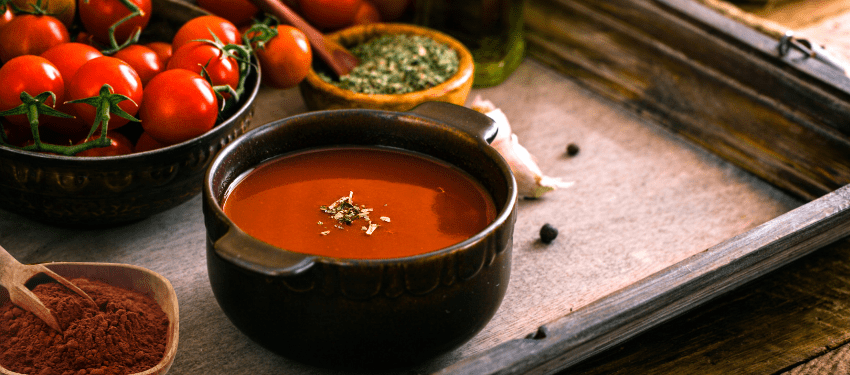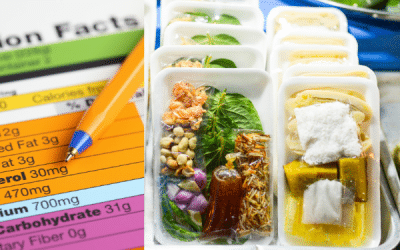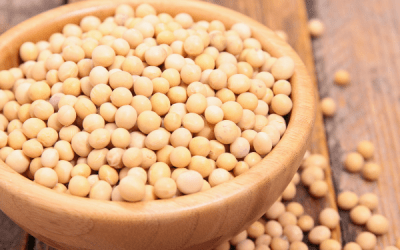From Convenience to Consciousness-Navigating the World of Packaged Soups

Soup has always been a comfort food, warming our souls and soothing our taste buds. In our fast-paced lives, packaged soups have become a convenient go-to option. Nonetheless, are they as healthy as they claim to be? Let’s dive into the world of packaged soups, unravel their healthfulness, and discover tips to make smarter choices.
Richa Pande
In today’s fast-paced world, packaged soups have emerged as a convenient and time-saving choice for numerous individuals looking for a quick meal. However, it is crucial to take into account the nutritional value of these convenient options and make well-informed decisions that promote our overall well-being. While not all packaged soups are created equal in terms of healthiness, this article aims to explore the realm of packaged soups, shed light on their nutritional aspects, and offer practical guidance for selecting the most suitable options that align with our dietary requirements and personal preferences.
Before we dive into the specifics of packaged soups, it’s important to understand the overall nutritional landscape of these products. While they offer convenience and a wide range of flavours, it’s crucial to be mindful of their ingredients and nutrient composition. Packaged soups can vary significantly in terms of their nutritional profiles, with some being more wholesome than others.
One key factor to consider is the sodium content. Many packaged soups tend to be high in sodium, which can have adverse effects on our health when consumed in excess. Excessive sodium intake has been linked to increased blood pressure and an increased risk of heart disease. Therefore, it’s advisable to choose soups with lower sodium levels or opt for reduced-sodium varieties.
Another important consideration is the presence of added sugars. While soups may not immediately come to mind as a source of added sugars, some packaged options can contain significant amounts. Added sugars not only contribute to excess calorie intake but can also lead to weight gain, increased risk of chronic diseases, and dental issues. Checking the ingredient list for terms like sucrose, corn syrup, or fructose can help you identify soups with lower added sugar content.
Additionally, it’s essential to be mindful of added additives and preservatives commonly found in packaged soups. Ingredients like corn flour, maltodextrin, and food colours are often used to enhance flavour, texture, and appearance. While these additives are generally considered safe for consumption, some individuals may prefer to avoid them due to personal preferences or specific dietary restrictions. Choosing soups with minimal artificial additives can help you make healthier choices.
Tips for Choosing Healthier Packaged Soups
When it comes to selecting packaged soups that promote your well-being, there are a few key factors to keep in mind. By following these tips, you can make informed choices and enjoy the convenience of packaged soups without compromising your health goals.
- Read the Nutrition Label:Take a close look at the nutrition facts panel on the packaging. Pay attention to serving size, calories, sodium, sugar, and fat content. Aim for soups that are lower in sodium and added sugars, and opt for options with healthier fats, such as unsaturated fats.
- Check the Ingredient List: The ingredient list provides valuable information about what goes into the soup. Look for soups with minimal ingredients and avoid those with added preservatives, artificial flavours, and excessive sodium. Seek out options with whole, recognizable ingredients like vegetables, lean proteins, and whole grains. Choose options with recognizable and natural ingredients.
- Look for Low-Sodium Options: High sodium intake can lead to various health issues. Sodium content can vary greatly among different brands and flavours. Compare food labels, and opt for options with lesser amounts of sodium. Consider diluting the soup with water or adding extra vegetables to lower the overall sodium concentration.
- Be aware of hidden sugars and unhealthy fatsin some packaged soups. Check the nutrition labels and pick soups with minimal added sugars and healthier fat sources.
- Choose Soups with Real Vegetables and Protein:Seek out soups that contain real vegetables and lean protein sources like beans, lentils, or chicken. These additions can boost the nutritional value of the soup, providing essential vitamins, minerals, and fibre.
- Avoid Maltodextrin in packaged soups:Maltodextrin, a common food additive in processed soups, is a highly processed ingredient derived from starch. It can cause blood sugar spikes. To minimize maltodextrin consumption, read ingredient labels carefully and choose soups without this additive. Make informed choices for better health.
- Opt for organic alternatives of packaged soups:Organic soups are made with pesticide-free ingredients, avoiding artificial additives. They prioritize natural, nutrient-dense ingredients, supporting your health and sustainable agriculture. Look for certified organic labels and enjoy the comforting convenience of packaged soups with added benefits.
- Pay attention to the recommended serving size on the nutrition label:The recommended serving size for packaged soups is typically mentioned on the label. Stick to the suggested portion to maintain a balanced diet. It’s easy to underestimate portions when indulging in delicious soups. If portion control is a concern, look for single-serving packets. This can help you manage your portion sizes more effectively and avoid overeating.
Consider Preparing Homemade Soups
Consider making your own soups at home using fresh ingredients to ensure maximum nutrition and flavour. This way, you can control the sodium and sugar content, avoid preservatives and additives, and customize the soup to your taste preferences. With some planning and creativity, you can whip up a batch of soup that’s both delicious and nourishing. It’s a good idea to make extra and freeze individual portions for later. This way, you’ll always have a nutritious and convenient meal option on hand. Additionally, resist the temptation to sieve your homemade soups as it removes valuable fibre and nutrients.
Invest in quality storage containers to keep your soups fresh and organized. Don’t forget to label them with the date to ensure you use them within a reasonable time frame. Stocking your freezer with homemade soups is a smart strategy for busy days or when you’re craving a comforting and healthy meal. Choose food-grade plastic containers for storing your homemade soups, ensuring they are BPA-free and specifically designed for food storage. Avoid using glass containers in the freezer as they can crack due to temperature changes.
By being mindful of the healthfulness of packaged soups and making informed choices, we can enjoy the convenience without compromising our well-being. Remember, it’s all about striking a balance and being conscious of the ingredients and nutritional value. So, the next time you reach for a packaged soup, arm yourself with the knowledge shared in this article and savour a delicious and nourishing meal!
Related
Decoding Packaged Foods: Empowering Healthier Choices through Information
In a bustling world filled with convenience and fast-paced lifestyles, packaged foods have become an integral part of our daily lives. These neatly...
Is Soya Healthy?
MARKETED AS A SUPER FOOD WITH ALMOST MAGICAL PROPERTIES, SOYA PROTEIN IS FOUND IN ALMOST EVERYTHING WE EAT. HOWEVER, SOYA NEEDS TO BE CONSUMED WITH...
Ketchup and Sauces
Ketchup and Sauces What makes your samosa or your pakoda tasty? No...not only the masala that goes into it but the tomato ketchup or sauce that...



